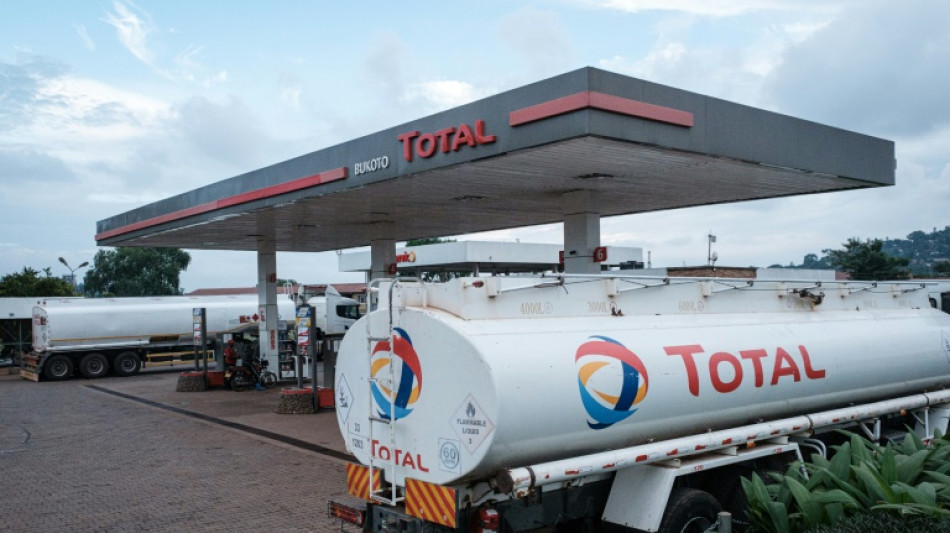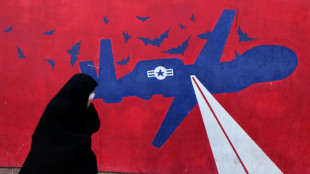
-
 Vonn to provide injury update as Milan-Cortina Olympics near
Vonn to provide injury update as Milan-Cortina Olympics near
-
France summons Musk for 'voluntary interview', raids X offices

-
 Stocks mostly climb as gold recovers
Stocks mostly climb as gold recovers
-
US judge to hear request for 'immediate takedown' of Epstein files

-
 Russia resumes large-scale strikes on Ukraine in glacial temperatures
Russia resumes large-scale strikes on Ukraine in glacial temperatures
-
Fit-again France captain Dupont partners Jalibert against Ireland

-
 French summons Musk for 'voluntary interview' as authorities raid X offices
French summons Musk for 'voluntary interview' as authorities raid X offices
-
IOC chief Coventry calls for focus on sport, not politics

-
 McNeil's partner hits out at 'brutal' football industry after Palace move collapses
McNeil's partner hits out at 'brutal' football industry after Palace move collapses
-
Proud moment as Prendergast brothers picked to start for Ireland

-
 Germany has highest share of older workers in EU
Germany has highest share of older workers in EU
-
Teen swims four hours to save family lost at sea off Australia

-
 Ethiopia denies Trump claim mega-dam was financed by US
Ethiopia denies Trump claim mega-dam was financed by US
-
Norway crown princess's son pleads not guilty to rapes as trial opens

-
 Russia resumes strikes on freezing Ukrainian capital ahead of talks
Russia resumes strikes on freezing Ukrainian capital ahead of talks
-
Malaysian court acquits French man on drug charges

-
 Switch 2 sales boost Nintendo profits, but chip shortage looms
Switch 2 sales boost Nintendo profits, but chip shortage looms
-
China to ban hidden car door handles, setting new safety standards

-
 Switch 2 sales boost Nintendo results but chip shortage looms
Switch 2 sales boost Nintendo results but chip shortage looms
-
From rations to G20's doorstep: Poland savours economic 'miracle'

-
 Russia resumes strikes on freezing Ukrainian capital
Russia resumes strikes on freezing Ukrainian capital
-
'Way too far': Latino Trump voters shocked by Minneapolis crackdown

-
 England and Brook seek redemption at T20 World Cup
England and Brook seek redemption at T20 World Cup
-
Coach Gambhir under pressure as India aim for back-to-back T20 triumphs

-
 'Helmets off': NFL stars open up as Super Bowl circus begins
'Helmets off': NFL stars open up as Super Bowl circus begins
-
Japan coach Jones says 'fair' World Cup schedule helps small teams

-
 Equities and precious metals rebound after Asia-wide rout
Equities and precious metals rebound after Asia-wide rout
-
Do not write Ireland off as a rugby force, says ex-prop Ross

-
 Winter Olympics 2026: AFP guide to Alpine Skiing races
Winter Olympics 2026: AFP guide to Alpine Skiing races
-
Winter Olympics to showcase Italian venues and global tensions

-
 Buoyant England eager to end Franco-Irish grip on Six Nations
Buoyant England eager to end Franco-Irish grip on Six Nations
-
China to ban hidden car door handles in industry shift

-
 Sengun leads Rockets past Pacers, Ball leads Hornets fightback
Sengun leads Rockets past Pacers, Ball leads Hornets fightback
-
Waymo raises $16 bn to fuel global robotaxi expansion

-
 Netflix to livestream BTS comeback concert in K-pop mega event
Netflix to livestream BTS comeback concert in K-pop mega event
-
Rural India powers global AI models

-
 US House to vote Tuesday to end shutdown
US House to vote Tuesday to end shutdown
-
Equities, metals, oil rebound after Asia-wide rout

-
 Bencic, Svitolina make history as mothers inside tennis top 10
Bencic, Svitolina make history as mothers inside tennis top 10
-
Italy's spread-out Olympics face transport challenge

-
 Son of Norway crown princess stands trial for multiple rapes
Son of Norway crown princess stands trial for multiple rapes
-
Side hustle: Part-time refs take charge of Super Bowl

-
 Paying for a selfie: Rome starts charging for Trevi Fountain
Paying for a selfie: Rome starts charging for Trevi Fountain
-
Faced with Trump, Pope Leo opts for indirect diplomacy

-
 NFL chief expects Bad Bunny to unite Super Bowl audience
NFL chief expects Bad Bunny to unite Super Bowl audience
-
Australia's Hazlewood to miss start of T20 World Cup

-
 Bill, Hillary Clinton to testify in US House Epstein probe
Bill, Hillary Clinton to testify in US House Epstein probe
-
Cuba confirms 'communications' with US, but says no negotiations yet

-
 Iran orders talks with US as Trump warns of 'bad things' if no deal reached
Iran orders talks with US as Trump warns of 'bad things' if no deal reached
-
From 'watch his ass' to White House talks for Trump and Petro


Investors agree $10 billion for controversial Uganda oil project
Chinese and French oil giants finally sealed a $10-billion deal Tuesday to unlock Uganda's energy resources and build a vast regional oil pipeline, a mega-project that has incensed environmental groups.
The so-called Final Investment Decision should pave the way for the export of millions of barrels of black gold that was first discovered in 2006 in Uganda, one of the world's most biodiverse regions.
The decision gives the final go-ahead to the long-delayed project and was hailed by Ugandan President Yoweri Museveni as an major economic boost for the landlocked East African country where many live in poverty.
Critics charge however that the ambitious scheme threatens the livelihoods of tens of thousands of people and fragile ecosystems in the heart of Africa.
The $10 billion investment deal was announced at a ceremony in Kampala by the heads of France's TotalEnergies and the local arm of the China National Offshore Oil Corporation (CNOOC).
The companies want to extract the huge crude oil reserves under Lake Albert, a 160-kilometre (100-mile) long natural border between Uganda and the Democratic Republic of Congo.
- 'A masterpiece' -
The oil would be pumped from Uganda in a 1,443-kilometre (900-mile) heated pipeline -– said to become the longest of its type when completed -- through Tanzania to the Indian Ocean port of Tanga.
TotalEnergies chairman and CEO Patrick Pouyanne described the controversial pipeline as a "masterpiece".
"Today is the day we commit to invest $10 billion in the Tilenga and Kingfisher projects and the 1,443-km long pipeline," he said.
"From today with the FID, the project will fully enter into the construction phase."
Museveni admitted he had been impatient about the long negotiating process to get the project off the ground, but said the pipeline could become a "nucleus" for East African oil.
The project has been hit by various obstacles including wrangling over tax agreements and a change of heart over the location of the pipeline which was initially due to go through Kenya.
Museveni also dismissed the concerns of environmental groups.
"Let the NGOs go and sleep in the bush if they want... There is nothing we are hiding."
Lake Albert lies atop an estimated 6.5 billion barrels of crude, of which about 1.4 billion barrels are currently considered recoverable.
Uganda's first oil is expected to flow in 2025 -- almost two decades after the reserves were discovered -- with full-scale commercial production planned for the following year when 230,000 barrels a day of the particularly viscous crude are expected to be pumped.
- 'Devastating' impact -
In Uganda, the drilling is located in several nature reserves, one of which extends to Murchison Falls, the country's largest national park.
TotalEnergies, formerly Total, said last year it had taken steps to reduce the project's impact on people and the environment, but conservation groups charge it will be devastating.
The pipeline project would be "displacing thousands of households, endangering water resources for millions of Ugandans and Tanzanians, devastating vulnerable ecosystems and pushing the world further into climate chaos," campaign group 350Africa.org's regional director Landry Ninteretse said in a statement.
A report last year by the International Federation for Human Rights (FIDH) based on studies with Oxfam said the project would affect more than 12,000 families and communities had no idea if their land would be lost.
A consortium of Ugandan and French NGOs filed a lawsuit in 2019 against the French company accusing it of failing to abide by legal obligations to protect the environment and the rights of the people affected by the project.
In December, the Court of Cassation, France's highest, ruled the case should be heard in a civil court rather than assigned to a commercial tribunal, in what the activists said was an important victory.
N.AbuHussein--SF-PST




